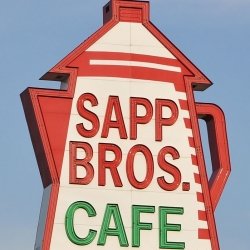
10 of the 12 counties with Category 1, 2, or 3 gambling already have blocked truck stops from VLT licenses.
Senate Bill 87 would allow Pennsylvania cities and towns to prohibit video gambling in their communities. Pennsylvania cities would have 90 days to issue a ban after the Pennsylvania Gaming Control Board issues a truck stop gambling license. The municipality also could resind the prohibition at any time.
State Sen. Scott Martin (R-Lancaster) introduced SB 87 into the Pennsylvania Senate. If a truck stop applicant was blocked by their local city leaders from receiving a license, the PGCG would refund the application fee to the owner.
The truck stop gambling legalization bill was passed in October 2017, when Gov. Tom Wolf signed the omnibus gambling bill (Act 42). It allowed any truck stop in the state that obtained a license to host up to 5 video lottery terminals (VLTs). The licensing process has opened statewide for truck stops that want to host VLTs, which Sen. Martin claims is causing angst and upheaval among the state’s communities.
The Pennsylvania Gaming Control Bureau said that 65 of the 300 eligible truck stops in the state have applied for VLT licenses. Of the 65 applicants, the Gaming Control Board has approved 43 of them.
Scott Martin: Applications are “Everywhere”
In an interview with told Transport Topics, Scott Martin said, “The applications now are popping up everywhere, and convenience stores, these rest stops are making requests to change things on their property to accommodate that. Our local governments, our citizens have been upset that all of these applications for video gaming terminals are popping up.”
Currently, Scott Martin’s bill is sitting in the Senate Community, Economic & Recreational Development Committee. Senator Martin first introduced the topic in a late-December. Martin said he was inspired by a clause in Act 42 that allowed Pennsylvania communities to opt out of the mini-casino or satellite casino licensing process. Act 42 also allowed the creation of up to 10 satellite casinos, also known as Category 4 mini-casinos.
Bill Mimics Act 42’s Opt-Out for Mini-Casinos
At the time, Sen. Martin said, “In October 2017, Governor Wolf signed Act 42, an omnibus gaming bill, into law. One of the key components of this legislation allowed local governments to opt-out of having a Category 4 ‘mini-casino’ in their municipality. By December 31, 2017, over 1,000 municipalities across the Commonwealth adopted resolutions to opt-out.”
The senator said the opt-out clause inspired him to write his own bill which would allow those same communities to keep gambling out of their truck stops. The speech went, “In addition to many other types of gaming expansion, Act 42 also created the opportunity for truck stop establishments who meet certain criteria to host up to 5 video game terminals (VGTs).”
SB 87 Expands Truck Stop Opt-Outs
Act 42 actually has an opt-out clause for truck stop gambling, but only in those counties with major gambling venues already. The clause was inserted at the urging of the casino and racino gaming interests in the state, who did not want competition from local truck stops. Having a local gaming machine monopoly is a major boon.
Scott Martin thinks all communities should have the ability to ban video lottery machines — not just the ones with casino corporations in town. Martin said, “An opt-out was available, but only for counties who had a Category 1, 2 or 3 casino already in their county. Ultimately 10 of the 12 counties with casinos adopted resolutions to opt-out.”
Gives Cities Right to Ban VLTs
Martin added, “Municipalities that do not want to see gaming expand into their communities should have the right to say no. The people should have the ability to maintain and protect their individual culture and that is why we are introducing legislation that will allow all municipalities, by resolution, to prohibit the use of VGTs at local truck stops.”
He called on fellow senator to co-sponsor this “timely legislation”. The bill has 5 co-sponsors, according to the Pennsylvania Senate’s official website.
Why VLTs Were Allowed in Truck Stops
If Scott Martin’s bill passed, it would be a major blow for truck stop owners across the state. It is well-known that truck stops make little off their gas sales, but instead use refueling to bring customers into the store in order to make a profit from in-store sales.
The VLT bill was designed to help local business owners stay in business and prosper. Five VLTs was not seen as harmful, especially since they were restricted to locations where long-haul truck drivers frequent. Those truckers tend to be from out-of-state, so Pennsylvania cities and counties collect tax revenues from non-Pennsylvanians.
